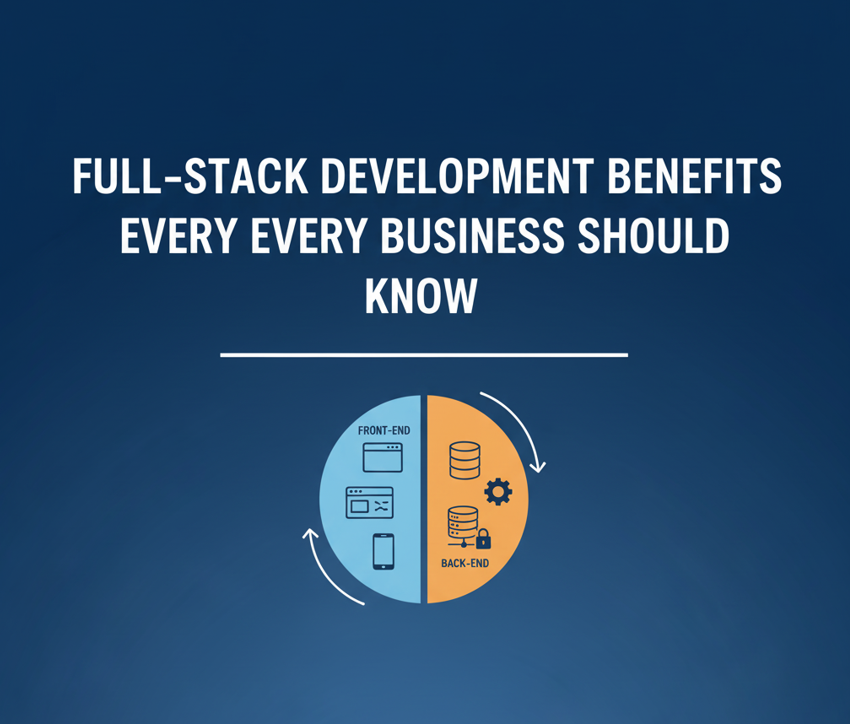
- The hiring cost for Full-Stack Development will be anywhere between $100 to over $100,000, and hourly rates can differ from around $30 to over $160 for hiring freelancers or agencies.
- The cost of a full-stack developer depends upon the type of services, expertise, region, experience and level of developers.
- India, Eastern Europe, US and few other regions are the most cost effective destinations to hire full stack developers, as you can hire experienced developers for $30 to $90 per hour.
- The most expensive countries to hire full stack developers are typically Switzerland, the United Kingdom (Australia), and the United States, even the junior level developer costs high around $20 to $50 per hour.
Full stack development handles both visual and functional components of web and app development projects. These developers are more responsive to market demand and build a seamless overall digital experience.
Are you looking for someone who can code it all? Or are you stuck between the hiring cost of Full-stack developers? Let us solve all your problems. In this article we have wrapped all the information about, but also have given a breakdown so you know all full stack development benefits, key components and use cases of full stack development services. Hiring full stack developers can handle everything from clean code, responsive front end design to powerful, reliable backend systems.
What is a fullstack?
Full stack development is a process of web application development that works for both frontend and backend components for an application. Frontend and Backend technologies are built on using frameworks such as, HTML5, CSS3, Javascript, Node.js, Express, PHP, Laravel and more. They deal with interfaces that the user sees, as well as the server side logic that operates behind the scenes as it interacts with APIs and databases.
A leading full stack web development company, specializes in custom web development tailored to your unique business need. Expert developers leverage modern technologies such as MERN Stack (MongoDB, Express.js, React, Node.js), and the MEAN Stack (MongoDB, Express.js, Angular, Node.js), to built a dynamic high performing web solutions.
Key Components of Full-Stack Development
Building a cost effective, creative and scalable digital products needs for business is a necessity, let’s explore the different components which enable each piece of application to operate seamlessly together.
1. Front-end development (Client-side)
Front end development focuses on the user interface where users can easily interact smoothly with the application through a responsive and visually clear layout, using technologies such as, HTML(structuring web pages), CSS(for styling and layout), and Javascript (for creating interactive and dynamic features).
2. Back-end development (Server side)
Backend handles all the server side logic, managing tasks like database operations, server communication and authentication. Developers use leverages such as python, Java, or Node.js to ensure that the core application functions run efficiently.
3. Database Management
Databases store and organize data efficiently so applications can retrieve and modify it as needed, which includes MYSQL, PostgreSQL, MongoDB, and Firebase.
4. Version Control and Collaboration
Versions control helps teams manage code changes and collaborate effectively using tools like Git, and keep track of changes throughout the development lifecycle.
5. Testing and Debugging
Testing guarantees that the application is both stable and up to the mark in terms of performance. The Quality Assurance analysts are using different testing methods such as unit, integration, and end to end testing along with tools like Jest, Mocha, or Selenium.
Full-Stack Development Benefits for Businesses
Small startups to giant companies are choosing full stack development to streamline their digital projects and improve overall efficiency. Here we have covered the key advantages of full stack development for businesses that highlight why this approach is gaining popularity across industries.
1. Cost-Effective Solutions
Full stack development services are often known for their cost effective solutions, which might differ due to regions, expertise, and services. With one team managing the whole process, businesses save on both time and resources without compromising on its quality.
2. Faster Development & Deployment
As full stack developers handle and manage the entire flow of the developing process, which advantages businesses experience faster around times. This also brings faster growth in a competitive market and brings products to market quickly.
3. Flexibility and Scalability
Full stack development allows easy scaling as your business success, developers can switch between technology, update existing systems with modern tools and features without disrupting the lifecycle stage, which enables your custom web development to evolve with your goals.
4. Better Problem Solving and Troubleshooting
Full stack developers manage both client side as well as server side, which means they’re expertise in handling complete architecture from detecting to fixing the issues, this approach enhances systems stability and long term reliability.
5. Long Term Support and Maintenance
A full stack software development team provides continuous after deployment support, regular updates and technical improvements if needed, and developers ensure that your platform status is secure, optimized and up to date.
Full Stack Magic: Real Use Cases Behind High-Performing Web Apps
As we have now witnessed how full stack development plays a backbone of modern digital innovation, which offers businesses the flexibility to craft, scale, and optimize complete applications from client side to server side. No matter whether it’s a startup MVP or an enterprise grade system, full stack developers bring life to seamless digital experiences.
1. Content Management Systems (CMS)
By using full stack development, companies are able to create personalized CMS solutions according to their content strategies, these systems simplify the handling of digital assets, implementation of SEO tools, and publication of digital content thus, they are perfect for blogs and media portals.
2. Real Time Applications
For integrating real time updates features, developers use technologies like Node.js, which includes chat applications, live tracking dashboards and collaborative tools, enabling instant update and a smooth user experience.
3. Cross Platform Solutions
The full stack devs are able to build applications that won’t have any issues when it comes to web and mobile platforms thanks to frameworks like React and Nodejs, this not only cuts down on the total time and money required for development but also keeps the experience unified.
4. SaaS Platforms
Full stack development plays a centric role in creating SaaS applications that are accessible anytime and anywhere. Developers build and design securable cloud based software solutions like project management tools or CRM systems.
5. Ecommerce Platforms
Full stack development enables the construction of safe and adaptable e-commerce websites with all the necessary features such as search for products, payment methods and user pages. It lets the company provide a pleasant and uninterrupted shopping experience and at the same time handle the inventory and customer data in an efficient way.
Conclusion
As you’re now familiar how full stack developers help end to end in driving success growth, which acts as a game changer for your company’s development. With the power to blend design, development and deployment seamlessly, full stack website development services empower businesses to craft an advanced, scale faster and creative without any limits and way beyond your thinking. It’s not just a development, it’s the future of digital transformation, built end to end.







